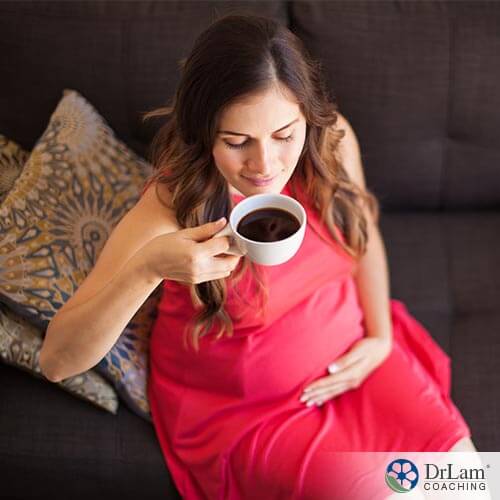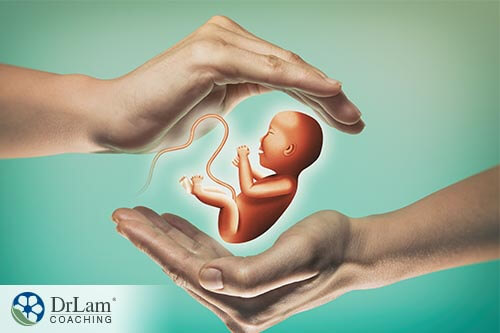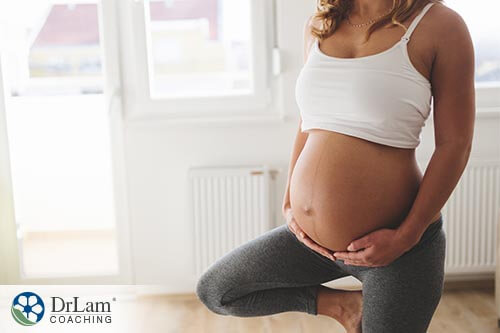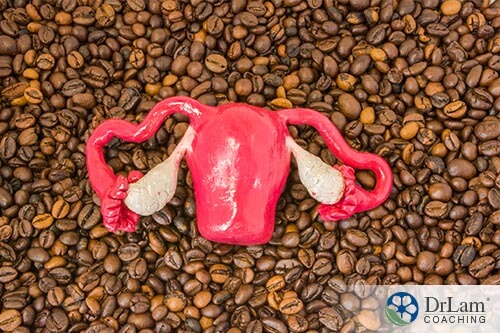 As a pregnant mother, you may have heard time and time again all types of warnings from friends and family about various things to avoid. With all the unsolicited advice you receive during this period, you may find yourself dismissing any and everything. One person says lifting your arms could lead to a miscarriage! Another claims driving over a bumpy road could lead to early labor! There is no way all this advice can be true. And indeed, most of these stories are just old wives tales with absolutely no scientific foundation. But when it comes to caffeine and pregnancy, though, you need to listen.
As a pregnant mother, you may have heard time and time again all types of warnings from friends and family about various things to avoid. With all the unsolicited advice you receive during this period, you may find yourself dismissing any and everything. One person says lifting your arms could lead to a miscarriage! Another claims driving over a bumpy road could lead to early labor! There is no way all this advice can be true. And indeed, most of these stories are just old wives tales with absolutely no scientific foundation. But when it comes to caffeine and pregnancy, though, you need to listen.
Although it would be best to cut out all caffeine before getting pregnant in order to give your baby the best chance possible, studies found that even 100 mg of caffeine, or approximately half a cup of coffee a day, could affect your baby’s birth weight by up to 28 grams. The daily recommended limit according to the American College of Gynecologists is less than 200 mg a day. More than this could put your unborn baby’s health in jeopardy.
In other words, any amount of caffeine may be too much. But if you absolutely have to, try to keep it to under two cups a day. Do remember, however, that the extra large latte from your favorite barista may contain much more caffeine than the cup of instant you might quickly brew at home.
Recently published results of a study undertaken in Norway spanning a number of years linked the occurrence of childhood obesity to caffeine and pregnancy. According to this study, children of mothers who had a significantly higher caffeine intake during their pregnancies showed marked growth as infants. The babies showed rapid weight gain, a phenomenon that has been linked to the development of obesity during adulthood. In other words, babies who gain weight rapidly during infancy stand a higher chance of becoming overweight or obese as adults.
The study itself was conducted over a period of nine years tracked children’s growth patterns for eight years after their birth, taking into consideration their mother’s caffeine habits during pregnancy. Their findings showed that in those women with a very high caffeine intake while pregnant, their children stood a 66% higher risk of excess growth during their first year of life as compared to those women with a relatively low caffeine intake. Please note that in this instance ‘excessive growth’ refers to weight gain as compared to that which is considered the norm for their particular age.
To compound matters even further, these children stood a significantly higher chance of being overweight at the ages of three and five years. By the age of eight, the children exposed to high levels of caffeine while their mothers were pregnant, still showed a higher propensity towards being overweight as compared to their counterparts whose mothers’ caffeine intake while pregnant was much lower or zero.
Other factors come into play by the time a child reaches the age of ten, such as diet, exercise, and lifestyle issues, and with these additions, internal mechanisms may become overwhelmed, leading children to gain more weight than their peers, with the result of them possibly becoming overweight teenagers and adults as well.
Research definitely links caffeine and pregnancy to the incidence of babies born with a lower than average birth weight. The report suggests that a high caffeine consumption could significantly increase your chances of giving birth to a smaller baby by up to 62%. Interestingly, though, the same research concludes that only coffee itself is responsible for a longer gestational period, with caffeine derived from other sources (such as tea or chocolate) not having the same result.
In addition to caffeine and pregnancy possibly resulting in a baby with a low birth weight, one needs to keep in mind that these babies are more at risk for developing numerous other health problems like diabetes, high blood pressure, and heart disease when adults.
Various studies indicate a strong link between caffeine consumption and the occurrence of miscarriages. The chances of a mother miscarrying when she drinks more than two cups of coffee, or more than 200 mg per day, increase by up to 74% over non-caffeine drinking mothers. Furthermore, caffeine and pregnancy may also significantly increase the chances of a miscarriage when a woman has a history of miscarriages.
 Although mice were used as test subjects, one study indicates that even two cups of coffee may negatively affect fetal heart development. This was especially problematic when the caffeine exposure occurred during the initial stages of pregnancy.
Although mice were used as test subjects, one study indicates that even two cups of coffee may negatively affect fetal heart development. This was especially problematic when the caffeine exposure occurred during the initial stages of pregnancy.
Caffeine, it seems, produces embryos that have a thinner layer of heart tissue separating the heart's chambers. The fetuses had decreased cardiac function as compared to those whose mothers had not consumed any caffeine at all.
All foods and drinks consumed by you, as a pregnant mother, make their way to your growing baby. All the nutrients you consume, along with oxygen, gets passed to your baby via the placenta. Unfortunately, this includes the ‘bad’ things as well, such as caffeine.
While you may not think a few cups of caffeine a day might do you any serious damage, it may have a significant effect on your unborn baby and his or her development. Caffeine takes a lot longer to break down in a fetus than in an adult, and it can cause a major increase in your baby’s stress hormones levels.
Caffeine is a stimulant, and as such, signals the chemical messengers in the brain. It thus impacts the Hypothalamic-Pituitary-Adrenal (HPA) axis, resulting in your body’s NeuroEndoMetabolic (NEM) Stress Response kicking into action and your body going into fight or flight mode. Constant caffeine bombardment may result in your body being in a prolonged state of alertness and may contribute to adrenal fatigue.
But not only your body feels this impact if you are pregnant. Your unborn baby’s body undergoes the same reaction. Besides overtaxing the adrenals, however, this prolonged NEM response has a cascading effect that affects all body organs, systems, and circuits. It also affects your hormones. When this happens, your entire body may find itself in a state of dysbiosis, as you experience a myriad of symptoms that may appear unrelated.
Hormonal changes are a natural part of being pregnant. Estrogen levels increase, and, during the first trimester, may contribute towards some of the nausea many women feel. Estrogen is also believed to be important in fetus development and maturation. During the latter stages of pregnancy, it plays a role in the development of milk ducts, readying your breasts for milk production in order to feed your baby.
 Your progesterone levels are also high during this period. Progesterone plays a role in loosening the joints and ligaments in your body, in effect preparing your body for the birthing process, while also causing your uterus to increase in size. It allows your uterus to expand to accommodate a nine-month-old baby.
Your progesterone levels are also high during this period. Progesterone plays a role in loosening the joints and ligaments in your body, in effect preparing your body for the birthing process, while also causing your uterus to increase in size. It allows your uterus to expand to accommodate a nine-month-old baby.
Coffee, however, affects your body’s hormones due to its impact on your HPA axis and subsequent NEM response. One of the hormonal axes affected is the ovaries, adrenals, and thyroid (OAT axis).
These three organs are codependent with regards to hormone production. When one is negatively impacted, all three are affected. Thus, when your adrenals become overworked, both your ovarian and thyroid function and hormones are affected.
For your body and pregnancy to run smoothly, the hormones of the OAT axis need to be in balance. This balance, in turn, is carried over to the fetus.
A hormonal imbalance, on the other hand, may result in numerous symptoms that may not, at first, seem related. Amongst these are :
Because a hormonal imbalance is associated with adrenal fatigue, other symptoms you might encounter are:
 When pregnant, your body’s demand for thyroxine, which is made by the thyroid gland, increases. This hormone crosses the placenta and is crucial for the development of your baby’s brain. This hormone also helps with both the growth and maturation of your baby’s organs.
When pregnant, your body’s demand for thyroxine, which is made by the thyroid gland, increases. This hormone crosses the placenta and is crucial for the development of your baby’s brain. This hormone also helps with both the growth and maturation of your baby’s organs.
Caffeine, however, results in increased cortisol production, thereby negatively impacting thyroid hormone production. In addition to this, caffeine also reduces your body’s ability to absorb iodine, which is crucial for thyroid health.
Mothers with low thyroid hormone levels stand the chance of giving birth to babies with a low birth weight. The chances of perinatal mortality as a result of eclampsia or placental issues are also increased.
While we may regard coffee as a primary source of caffeine and adjust our daily intake (or stop drinking coffee entirely) for the duration of a pregnancy, there are many other sources as well. Caffeine is also found in tea, cola, energy drinks, and chocolate. These are pretty much everyday stuff found around the house that we do not even think about.
Although many of us may rely on coffee as a pick-me-up in the morning or during the day, expectant mothers should keep a sharp eye on their general caffeine intake. The amount of research suggesting negative consequences with regards to a baby’s health is staggering. Cutting out coffee completely would be ideal. Failing that, you should try to limit your caffeine intake as much as you possibly can.
While studies strongly indicate that caffeine and pregnancy is a contributing factor to weight gain during childhood, other factors also play a role. These factors include aspects such as lifestyle choices, diet, and the amount and type of exercise a child gets.
